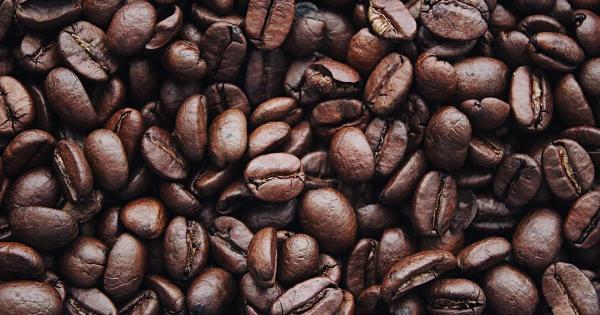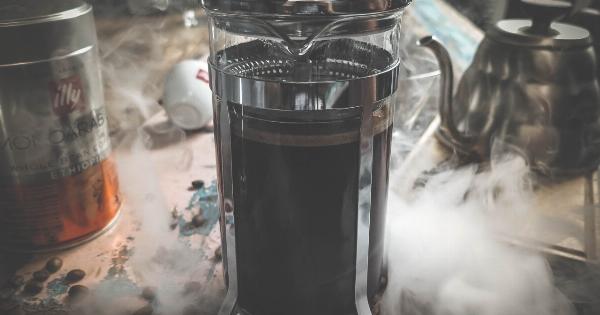For many people, drinking a cup of coffee is an essential part of their morning routine. The rich aroma and bold flavor of the beverage help to kickstart the day, and the caffeine content provides a quick burst of energy.
However, while coffee may seem harmless and even beneficial, there are actually some potential dangers associated with consuming it first thing in the morning. In this article, we will explore these dangers and their potential impact on your health.
1. Disrupting your sleep cycle
Coffee contains high levels of caffeine, which is a stimulant known for its ability to keep you awake and alert. While this may be desirable during the day, drinking coffee in the morning can disrupt your sleep cycle.
Consuming caffeine early in the day can make it harder for you to fall asleep at night, leading to restless nights and fatigue the next day. It’s important to give your body enough time to process the caffeine before bedtime, which is why it is recommended to avoid consuming coffee within six hours of going to sleep.
2. Increased anxiety and stress levels
While caffeine can provide a temporary boost in energy and alertness, it can also trigger or exacerbate symptoms of anxiety and stress. If you already struggle with anxiety, starting your day with a cup of coffee may not be the best idea.
Caffeine stimulates the release of cortisol, a stress hormone, leading to an increase in feelings of restlessness, irritability, and unease. If you notice that your anxiety levels are spiking after your morning cup of joe, it might be worth considering other alternatives or reducing your caffeine intake.
3. Digestive issues and stomach discomfort
Drinking coffee on an empty stomach in the morning can lead to various digestive issues and stomach discomfort. The high acidity of coffee can irritate the lining of the stomach, causing symptoms such as heartburn, indigestion, and stomach pain.
Additionally, caffeine can act as a diuretic, increasing the need to urinate and potentially leading to dehydration. If you struggle with any digestive issues or have a sensitive stomach, it is advisable to consume coffee with or after a meal rather than first thing in the morning.
4. Dependency and withdrawal symptoms
Coffee contains caffeine, which is a psychoactive substance. Regular consumption of caffeine can lead to dependency, where your body becomes reliant on the substance to function optimally.
If you are accustomed to drinking coffee every morning and suddenly stop, you may experience withdrawal symptoms such as headaches, fatigue, irritability, and difficulty concentrating. This dependency can make it challenging to reduce or eliminate coffee from your routine, as your body has become accustomed to the regular intake of caffeine.
5. Negative impact on hydration levels
Caffeine is a mild diuretic, meaning it increases urine production and can contribute to dehydration. When you consume coffee first thing in the morning, you may be starting your day off on a dehydrated note.
Hydration is essential for overall health and well-being, and starting your day with a glass of water instead of a cup of coffee can help replenish fluids lost during sleep and set a healthier foundation for the rest of the day.
6. Interference with nutrient absorption
Coffee contains compounds called tannins, which can interfere with the absorption of certain minerals, such as iron and calcium, in the body.
When consumed in large amounts, coffee can potentially hinder the absorption of these essential nutrients, leading to deficiencies over time. If you rely heavily on coffee in the morning and have concerns about nutrient absorption, it may be beneficial to incorporate other beverages or foods that support the absorption of these minerals.
7. Negative effects on dental health
The dark pigments found in coffee can stain your teeth over time, leading to a less-than-perfect smile. Additionally, the high acidity of coffee can erode tooth enamel, making your teeth more vulnerable to decay and sensitivity.
If you consume coffee first thing in the morning, be sure to brush your teeth afterward or consider drinking it through a straw to minimize contact with your teeth.
8. Impact on adrenal health
Your adrenal glands produce hormones that help regulate stress response, energy levels, and overall well-being.
The regular and excessive consumption of coffee can put additional stress on these glands, potentially leading to adrenal fatigue or dysfunction. When your adrenals are overworked, it can result in symptoms such as fatigue, low energy, and difficulty handling stress. To support your adrenal health, it may be advisable to reduce or eliminate coffee consumption, especially in the morning.
9. Aggravation of certain health conditions
While coffee can have various health benefits, it may not be suitable for everyone, especially those with certain underlying health conditions.
Individuals with acid reflux, gastritis, irritable bowel syndrome (IBS), or high blood pressure may find that drinking coffee first thing in the morning exacerbates their symptoms. It is essential to listen to your body and consult with a healthcare professional if you have concerns about how coffee may be affecting your specific health condition.
10. Interference with medication effectiveness
Caffeine can interact with certain medications, reducing their effectiveness or increasing their side effects.
If you take medications regularly, especially those for anxiety, blood pressure, or thyroid conditions, it is crucial to be mindful of your caffeine intake. Drinking coffee first thing in the morning can interfere with the absorption and efficacy of these medications, potentially compromising your health.
In conclusion, while coffee may be a beloved morning beverage for many, it is important to be aware of the potential dangers associated with drinking it first thing in the morning.
From disrupting sleep cycles and increasing anxiety levels to causing digestive issues and dependency, coffee consumption on an empty stomach can have negative consequences for your overall well-being. It is advisable to consider alternative morning routines and be mindful of your caffeine intake, taking into account your individual health needs and any underlying conditions.





























